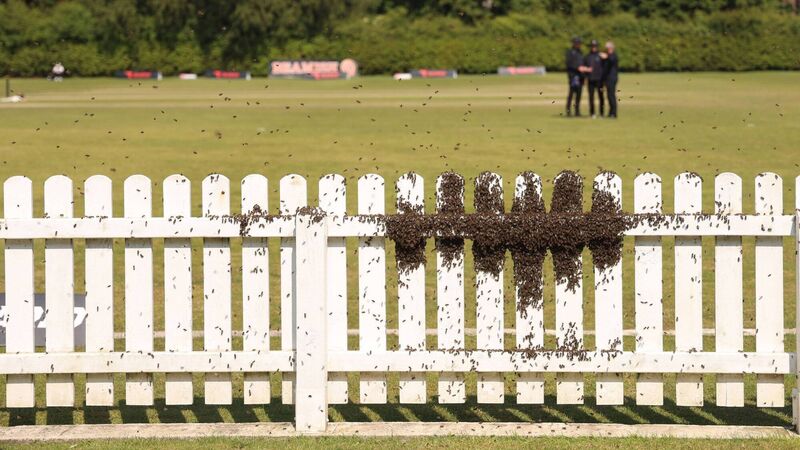Swarm of 20,000 honeybees stalls Cork cricket game

A swarm of 20,000 honeybees descended on Cork County Cricket Club, stopping play. Picture: Oisín Keniry
Munster cricket players were forced to take cover after a swarm of 20,000 honeybees descended on and delayed their game in Cork.
The Munster Reds were taking on the Northern Knights at Cork County Cricket Club on Wednesday when the insects made a beeline for the pitch and play was halted for over an hour.
















